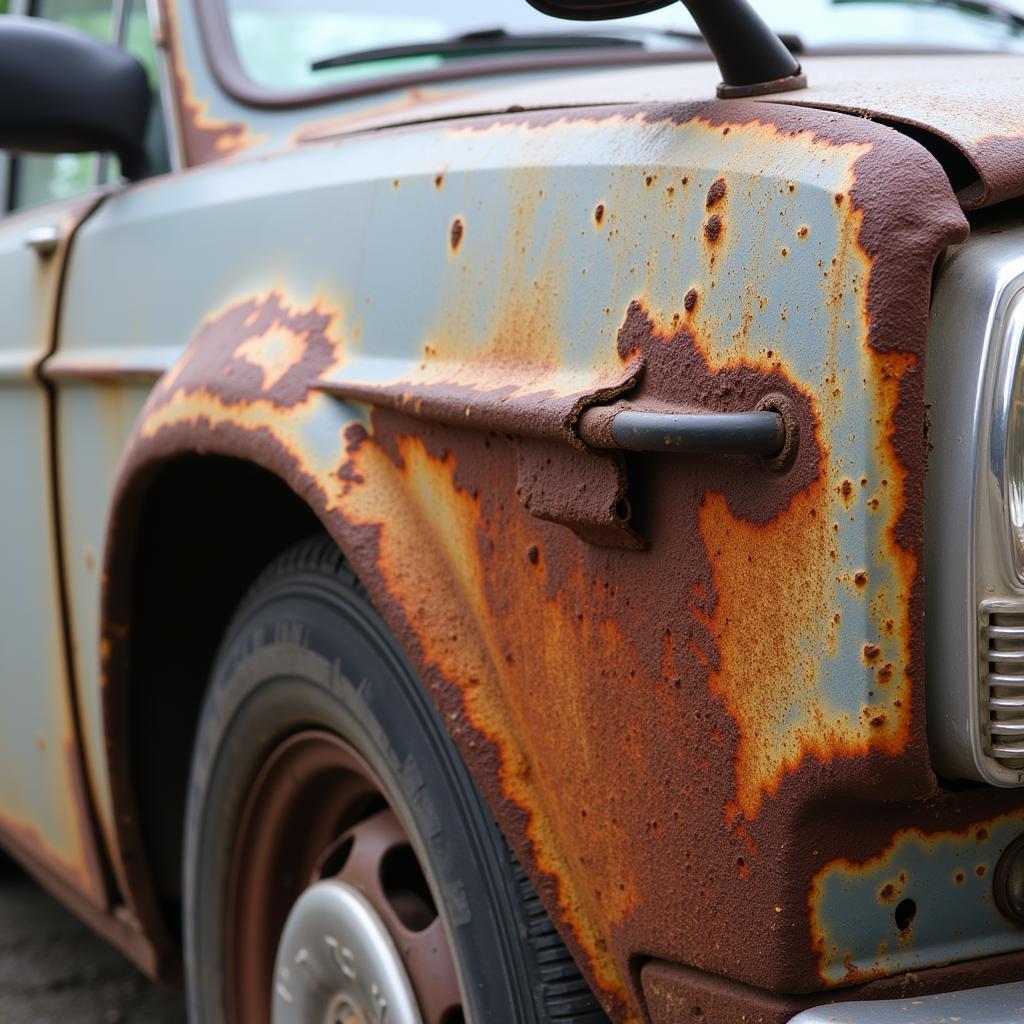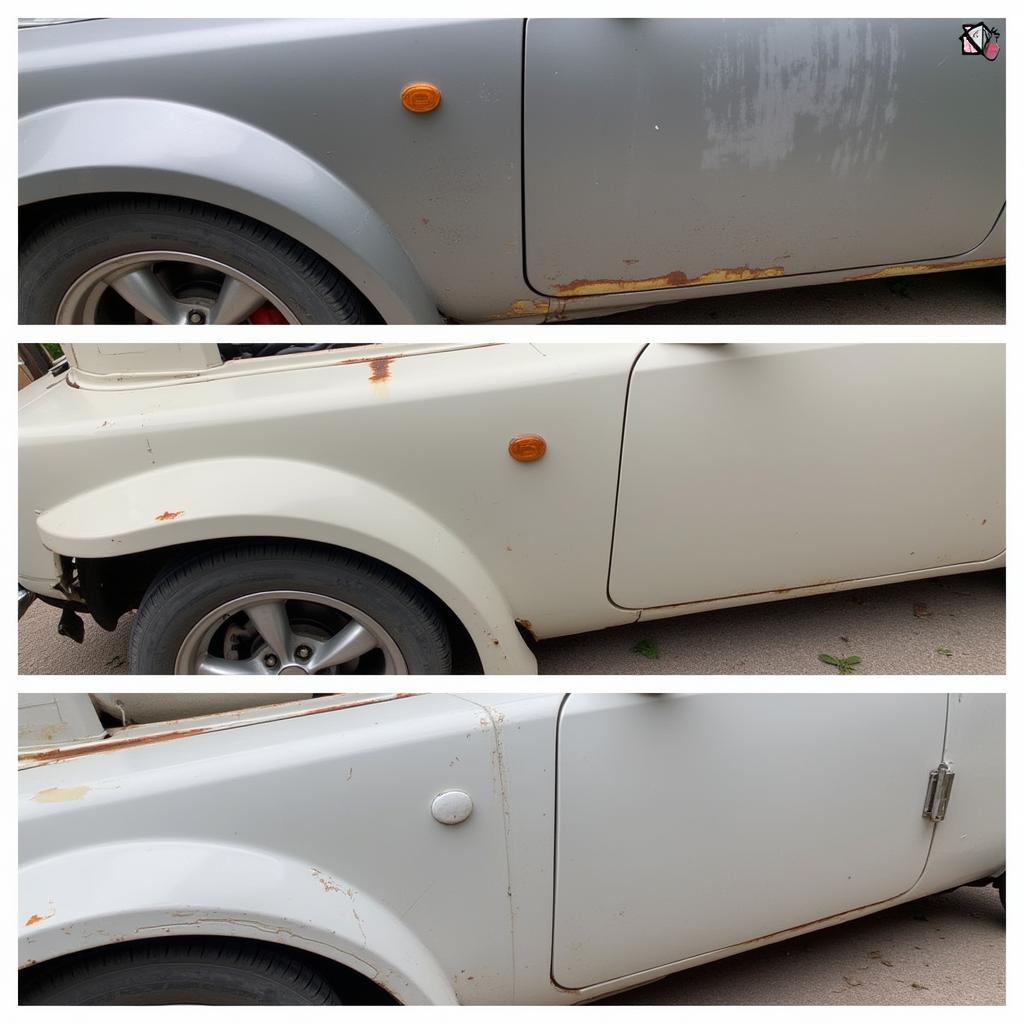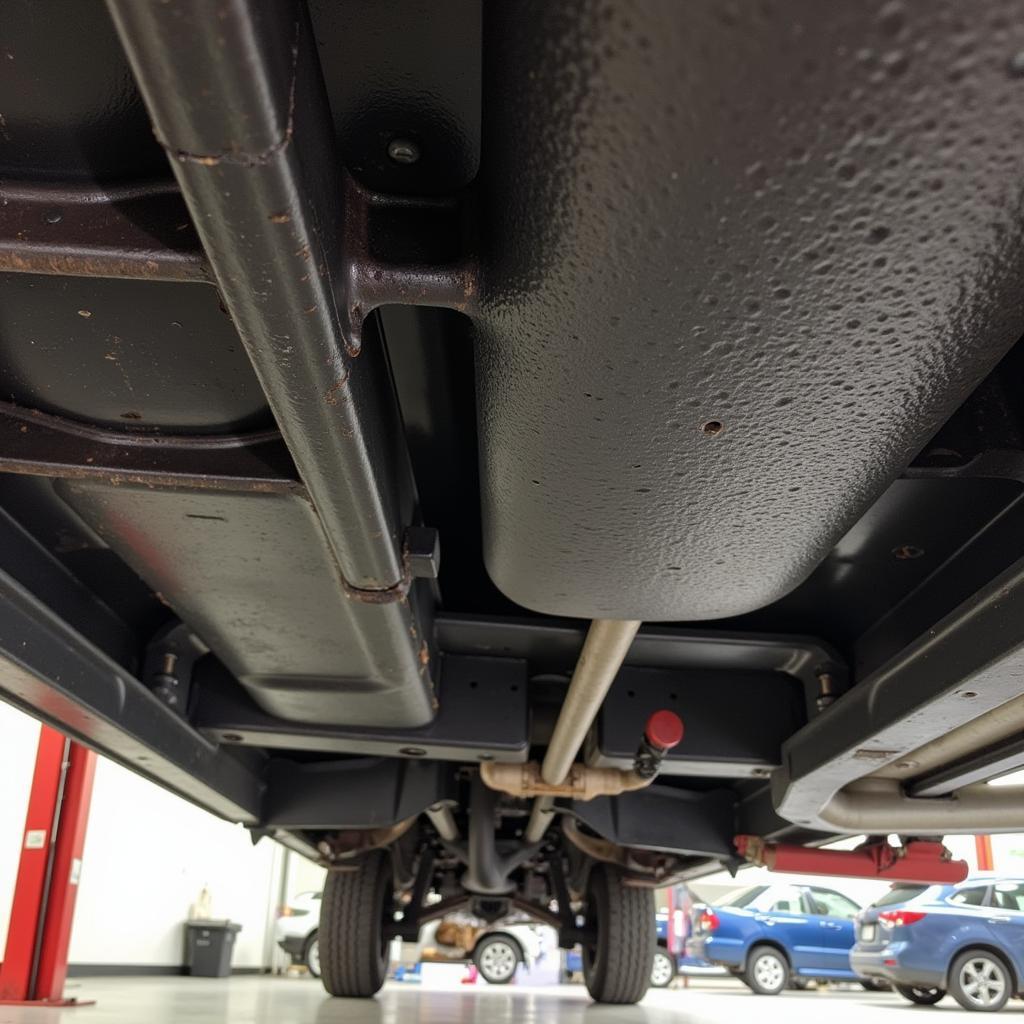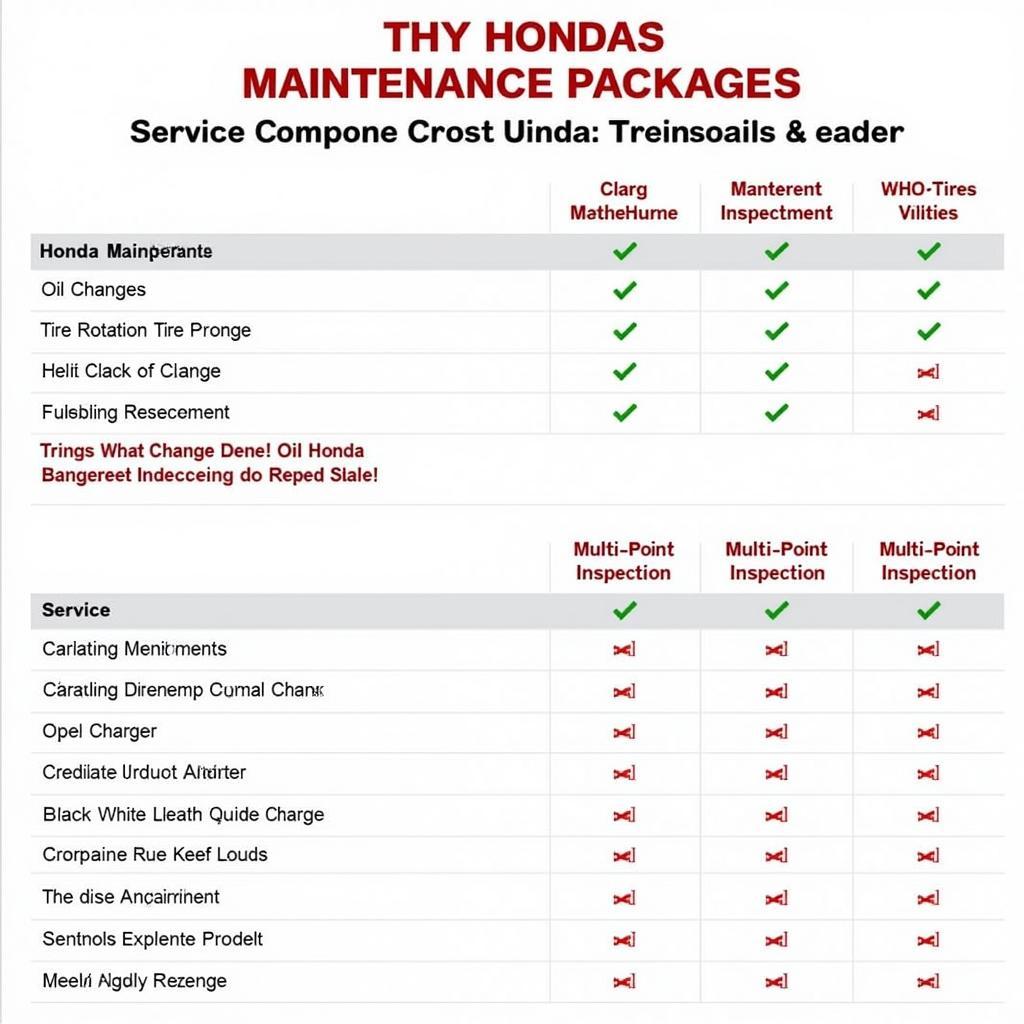Rust: A Comprehensive Guide to Understanding, Repairing, and Preventing Corrosion on Your Car
Rust is a common problem for car owners, especially those who live in areas with high humidity or salt exposure. It can start as small blemishes and quickly spread, causing significant damage to your car’s body and potentially reducing its value. Fortunately, there are several ways to fix rust on your car, ranging from simple DIY solutions to professional repairs. In this article, we will discuss the causes of rust, different repair methods, and essential preventative measures to protect your car from further damage.
Understanding Rust: The Enemy of Metal
Rust is a form of corrosion that occurs when iron or steel is exposed to oxygen and moisture. The process begins with the formation of iron oxide, a reddish-brown substance that weakens the metal. Over time, rust can cause holes, cracks, and other structural damage to your car’s body.
Here are some of the most common causes of rust on a car:
- Salt and Road Debris: Salt used to de-ice roads in winter is highly corrosive and can quickly lead to rust formation.
- Moisture: Exposure to rain, snow, and humidity can create the ideal conditions for rust to develop.
- Scratches and Dents: Even small scratches and dents can expose the underlying metal to oxygen and moisture, leading to rust.
- Improper Repairs: If previous repairs were not done correctly, they can trap moisture and lead to rust formation.
 Car rust damage
Car rust damage
Dealing with Rust: Repair Options
The best way to deal with rust depends on the severity of the damage. Here are some common repair options:
1. Sanding and Painting (DIY)
For minor rust spots, you can try to remove them with sandpaper and repaint the affected area. Here’s how:
- Clean the surface: Use a wire brush or sandpaper to remove any loose rust and debris.
- Prime the area: Apply a rust-inhibiting primer to the bare metal.
- Paint the area: Use a high-quality automotive paint that matches the color of your car.
2. Rust Converter
Rust converter is a chemical solution that turns rust into a stable, non-corrosive substance. It’s often used for minor rust spots and can be applied directly to the affected area. However, rust converters might not be effective for deep rust pits or large areas of corrosion.
3. Rust Removal Chemicals
These chemicals are designed to dissolve rust and can be applied to larger areas of corrosion. However, they can be harsh on the surrounding paint, so it’s important to follow the manufacturer’s instructions carefully.
 Rust removal process
Rust removal process
4. Professional Repairs
For significant rust damage, it’s best to seek professional help. A qualified auto body shop can use various techniques, including:
- Rust Removal and Replacement: For deep rust pits, the affected metal may need to be cut out and replaced with new metal.
- Weld Repair: This technique involves welding new metal to the affected area, creating a seamless repair.
- Fiberglass Repair: Fiberglass can be used to fill in larger areas of rust damage and provide a smooth surface for painting.
Preventing Rust: Keeping Your Car Protected
The best way to deal with rust is to prevent it from forming in the first place. Here are some tips for protecting your car from rust:
- Regular Car Washes: Wash your car regularly to remove salt, dirt, and other debris that can contribute to rust formation.
- Waxing: Applying a coat of wax creates a protective barrier against moisture and UV rays.
- Undercoating: Undercoating is a protective layer applied to the underside of your car to prevent rust from forming on the frame and other components.
- Spot Treatments: If you notice any minor rust spots, treat them immediately with a rust converter or a rust-removing product.
- Park in Covered Areas: If possible, park your car in a garage or under a carport to protect it from the elements.
 Car undercoating
Car undercoating
Conclusion:
Rust can be a serious problem for car owners, but it’s preventable with proper care and maintenance. Remember to regularly wash your car, apply wax, consider undercoating, and address any rust spots promptly. By taking these steps, you can extend the life of your car and keep it looking its best for years to come.
For expert assistance and guidance on fixing rust on your car, reach out to our team at AutoTipPro. We have a team of experienced professionals ready to assist you with all your automotive needs.
Contact us:
Phone: +1 (641) 206-8880
Office: 500 N St Mary’s St, San Antonio, TX 78205, United States
FAQs:
Q: What is the best way to prevent rust on a car?
A: The best way to prevent rust is to keep your car clean, apply wax regularly, and consider undercoating the underside of your car.
Q: How can I tell if I have rust on my car?
A: Look for any reddish-brown spots, blisters, or pitting on your car’s body. You can also check for rust on the undercarriage, frame, and wheel wells.
Q: Can I remove rust myself?
A: For minor rust spots, you can try to remove them with sandpaper and repaint the area. However, for larger areas of rust damage, it’s best to seek professional help.
Q: Is rust removal a permanent fix?
A: Rust removal is not always a permanent fix. Depending on the severity of the rust damage, it might require ongoing maintenance to prevent it from returning.
Q: How much does it cost to fix rust on a car?
A: The cost of rust repair can vary depending on the severity of the damage and the repair method used. It’s best to get a quote from a qualified auto body shop.
Q: Does rust affect the value of a car?
A: Yes, rust can significantly reduce the value of a car. This is especially true for older vehicles, as rust can be a sign of neglect and potential structural damage.





Leave a Reply